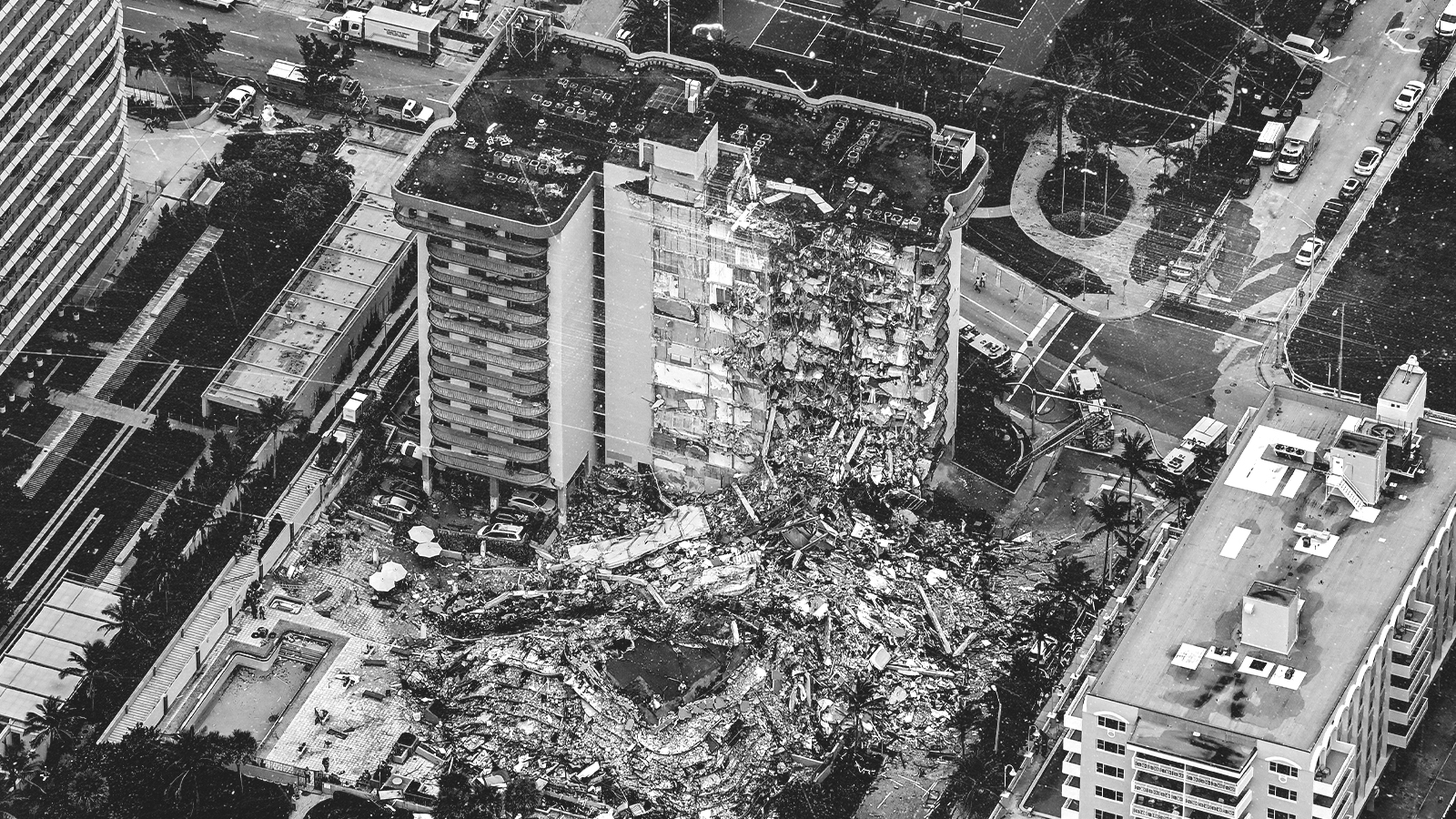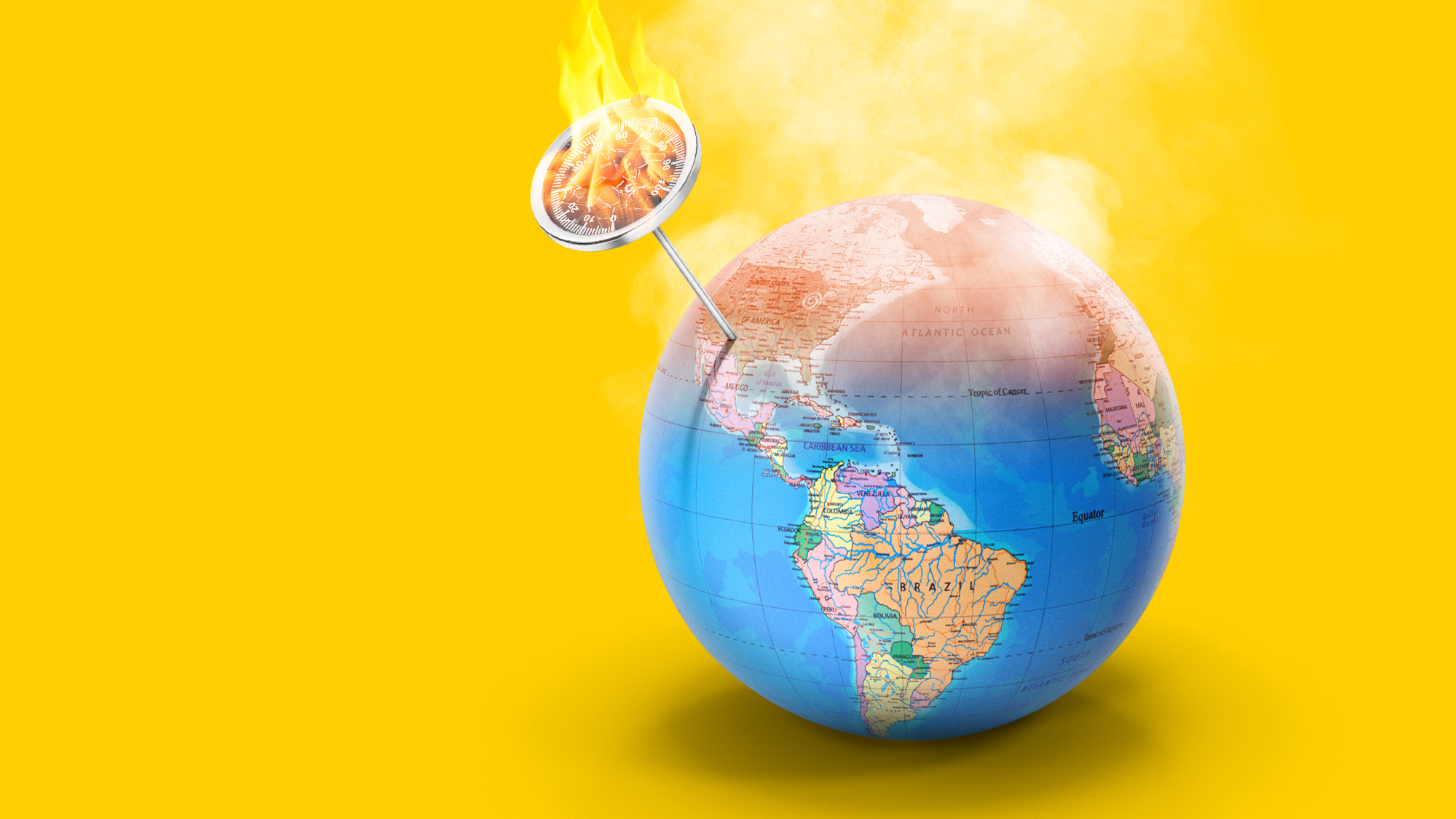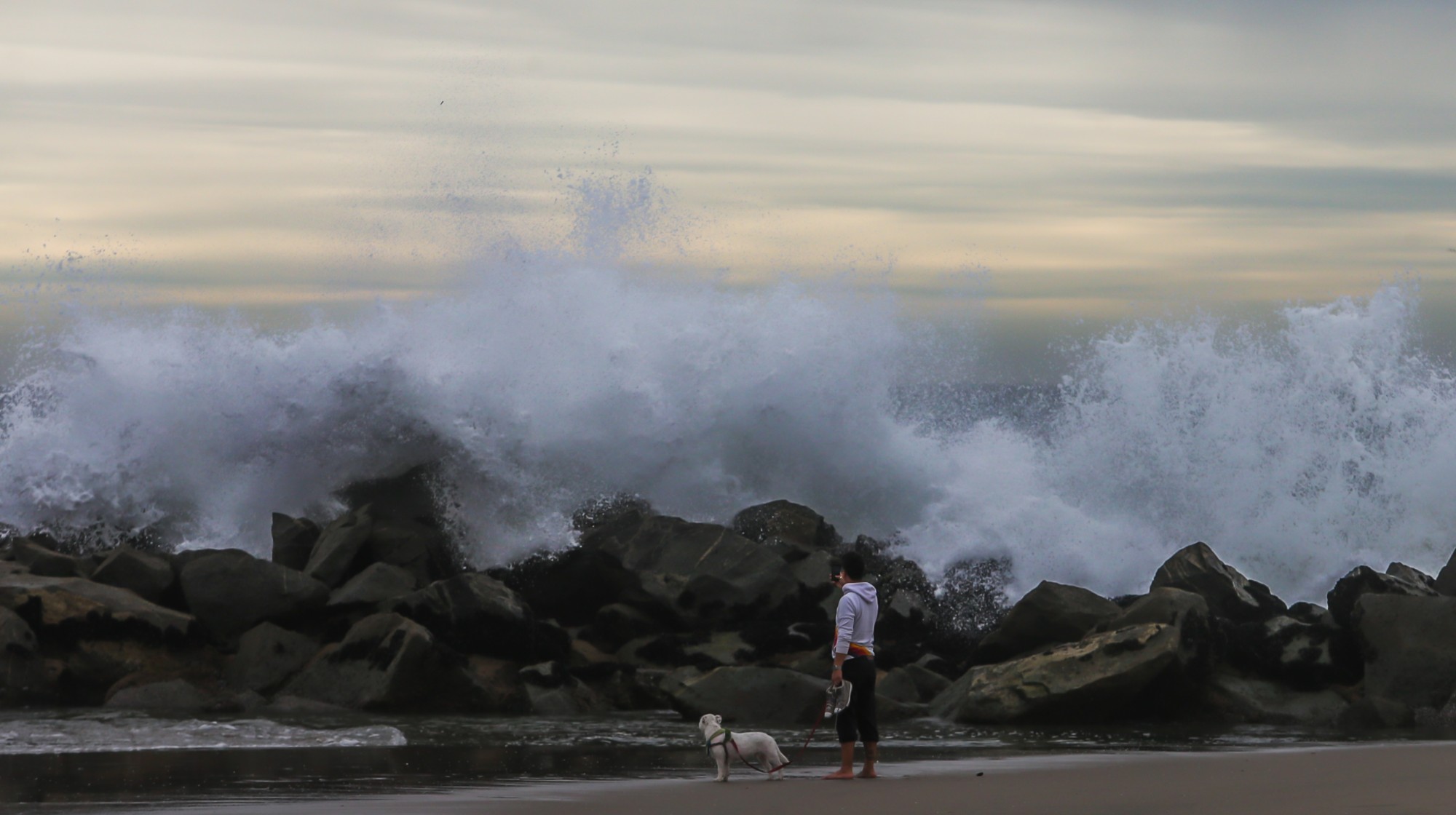The Miami condo collapse is a devastating reminder of America's artificial land problem
Big chunks of American cities are built on man-made land that is a climate catastrophe waiting to happen


A free daily email with the biggest news stories of the day – and the best features from TheWeek.com
You are now subscribed
Your newsletter sign-up was successful
A condo complex in south Florida partly collapsed out of nowhere Thursday morning. At time of writing, at least four people are confirmed dead and 159 others are still missing — making it likely one of the worst building collapse disasters in American history.
It is not yet known for certain what caused the collapse, but one probable culprit was the fact that the building had been built on reclaimed wetland, and as a result, had been sinking into the ground for decades. Scientist Shimon Wdowinski happened to study the area last year, and found that the building (which was built in in 1981) had been sinking at the rate of about 2 millimeters per year back in the 1990s. Even if some other factor was the proximate cause, the sinking surely made it worse — a building in such a situation can easily develop cracks in its foundation or other problems that compromise its structure.
It's illustrative of a major problem in many American cities: reclaimed land. Big chunks of almost all American coastal cities are built on reclaimed land that will likely turn to soup as climate change causes ocean levels to rise.
The Week
Escape your echo chamber. Get the facts behind the news, plus analysis from multiple perspectives.

Sign up for The Week's Free Newsletters
From our morning news briefing to a weekly Good News Newsletter, get the best of The Week delivered directly to your inbox.
From our morning news briefing to a weekly Good News Newsletter, get the best of The Week delivered directly to your inbox.
Rising seas of course threaten any city that is at a low elevation. But reclaimed land — that is, new land space made by dumping fill into a lake, river, ocean, or wetland — is at particular risk, because it is much less stable than normal land. At best, reclaimed areas are made with concrete, rocks, sand, or other material that can be compacted into a fairly stable shape. At worst, they are made by throwing some dirt over the top of a pile of garbage, and building more city on top of it.
This literal trash foundation is unfortunately how big parts of numerous American cities have been built. Back in the 19th century, when there was little by way of environmental regulations or sane building codes, cites would often just dump their trash into any handy spot, and start slapping up buildings on top of the mess. U.S. Geological Survey maps show big chunks of the cities around San Francisco Bay are built on artificial fill, some of it garbage from the 1840s. The same thing is true of New York City.
Even the best reclaimed land tends to subside over time, as it has not had tens of millions of years to stabilize. For instance, the Kansai International Airport, built on an artificial island by world-class Japanese engineers in the early 1990s, still sank much more quickly than predicted and required expensive upgrades and protection to keep it from falling underwater. That process is accelerated by rising sea levels, as the ocean is effectively coming up to meet the land coming down, and because reclaimed land tends to become destabilized much more easily with more water contact. That in turn increases the vulnerability to earthquakes in seismically-active locations like Tokyo or San Francisco.
As Grace Mitchell Tada writes in The New York Times, in previous earthquakes much of the old San Francisco fill had liquified, causing immense structural damage to streets and buildings above it. Now rising oceans threaten the sea wall along the city's northeast edge even more. This wall was built over a century ago to shore up the city's edges and create over 500 acres of new land, where many of the city's most popular attractions, biggest businesses, and key public services now sit. The aging sea wall has already subsided substantially, and rising seas only increase the danger. The government estimates that another major earthquake is likely to strike the region in the next 22 years, which could destroy the wall outright and possibly cause big chunks of the city to slough off into the bay:
A free daily email with the biggest news stories of the day – and the best features from TheWeek.com
During one of the most worrisome earthquake scenarios, described in Waterfront Resilience Program documents, when the ground spills into the bay, engineers fear that so, too, might the utility corridor, rupturing pipes and electricity lines. The historic pier sheds and bulkhead wharves would tumble into the water, and the wooden piles supporting them would splinter. Researchers predict that the land supporting near-shore blocks of the city — former marshland — will convulse like water just as in Kobe, displacing anything and anyone atop it. If the quake hits on a weekday, 40,000 people could be along the waterfront, many stuck in collapsed structures or piers over water. This same area, along the Embarcadero, holds the city's disaster response services, including evacuation facilities and its emergency operation center, which would be cut off when most needed. Over $100 billion in building value and economic value are potentially at risk from sea wall collapse, not including pricey utility repair. Port engineers fear much of the sea wall itself would be irreparable. [The New York Times]
Reclaimed land is just one of a thousand different threats that are either going to be addressed soon or cause enormous disasters eventually. America and the world needs swift action to slash greenhouse gas emissions immediately, and huge upgrades to our infrastructure and social systems to deal with the oncoming damage that is already baked in from decades of political dithering. Every minute of delay will only make future problems worse.
Ryan Cooper is a national correspondent at TheWeek.com. His work has appeared in the Washington Monthly, The New Republic, and the Washington Post.
-
 Bad Bunny’s Super Bowl: A win for unity
Bad Bunny’s Super Bowl: A win for unityFeature The global superstar's halftime show was a celebration for everyone to enjoy
-
 Book reviews: ‘Bonfire of the Murdochs’ and ‘The Typewriter and the Guillotine’
Book reviews: ‘Bonfire of the Murdochs’ and ‘The Typewriter and the Guillotine’Feature New insights into the Murdoch family’s turmoil and a renowned journalist’s time in pre-World War II Paris
-
 Witkoff and Kushner tackle Ukraine, Iran in Geneva
Witkoff and Kushner tackle Ukraine, Iran in GenevaSpeed Read Steve Witkoff and Jared Kushner held negotiations aimed at securing a nuclear deal with Iran and an end to Russia’s war in Ukraine
-
 Trump’s EPA kills legal basis for federal climate policy
Trump’s EPA kills legal basis for federal climate policySpeed Read The government’s authority to regulate several planet-warming pollutants has been repealed
-
 Trump pulls US from key climate pact, other bodies
Trump pulls US from key climate pact, other bodiesSpeed Read The White House removed dozens of organizations from US participation
-
 The billionaires’ wealth tax: a catastrophe for California?
The billionaires’ wealth tax: a catastrophe for California?Talking Point Peter Thiel and Larry Page preparing to change state residency
-
 Bari Weiss’ ‘60 Minutes’ scandal is about more than one report
Bari Weiss’ ‘60 Minutes’ scandal is about more than one reportIN THE SPOTLIGHT By blocking an approved segment on a controversial prison holding US deportees in El Salvador, the editor-in-chief of CBS News has become the main story
-
 Trump aims to take down ‘global mothership’ of climate science
Trump aims to take down ‘global mothership’ of climate scienceIN THE SPOTLIGHT By moving to dismantle Colorado’s National Center for Atmospheric Research, the White House says it is targeting ‘climate alarmism’
-
 ‘It’s ironic in so many ways’
‘It’s ironic in so many ways’Instant Opinion Opinion, comment and editorials of the day
-
 Newsom slams Trump’s climate denial at COP30
Newsom slams Trump’s climate denial at COP30speed read Trump, who has called climate change a ‘hoax,’ declined to send any officials to this week’s summit
-
 Alaska faces earth-shaking loss as seismic monitoring stations shutter
Alaska faces earth-shaking loss as seismic monitoring stations shutterIN THE SPOTLIGHT NOAA cuts have left the western seaboard without a crucial resource to measure, understand and predict tsunamis
